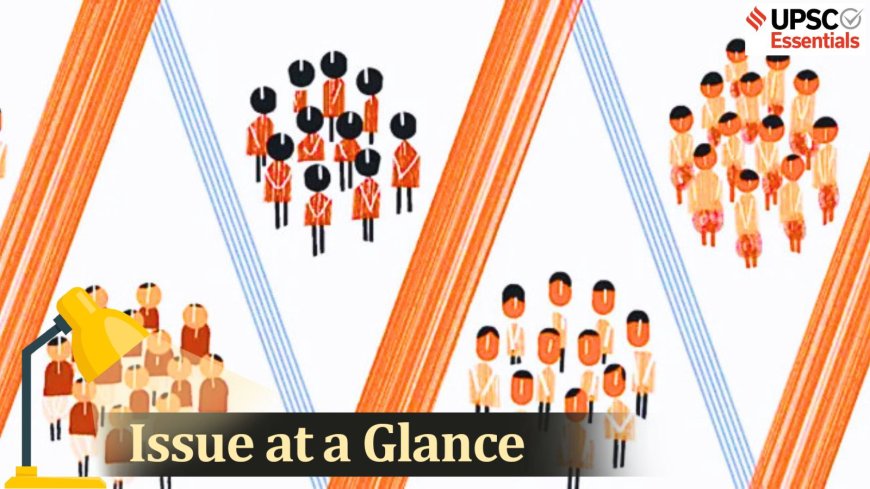UPSC Issue at a Glance | From Caste to its Census: What you must know for UPSC Exam

UPSC Issue at a Glance | From Caste to its Census: What you must know for UPSC Exam
Breaking News, Daily Updates & Exclusive Stories - asarkari
As the UPSC (Union Public Service Commission) exam approaches, aspiring candidates are faced with complex issues that shape contemporary India. Among these, the caste system and the ongoing census have emerged as pivotal topics of discussion and analysis. Understanding these subjects not only helps in preparation for the exam but also deepens one's grasp of Indian society and governance. Written by Neha Sharma and Priya Singh, team asarkari offers a comprehensive look at these critical subjects.
The Caste System: A Double-Edged Sword
The caste system in India is an ingrained social structure that has influenced the country's sociopolitical landscape for centuries. With roots tracing back to Vedic scriptures, this stratification has evolved, impacting various domains, including education, employment, and politics.
For the UPSC exam, candidates should be well-versed in how caste dynamics affect policy-making and the implementation of affirmative action programs. Recent developments, such as the demand for caste-based census, evoke strong opinions across the political spectrum. Understanding these nuances is vital for both the General Studies papers and the Sociology optional subject.
Census: The Crux of Current Debates
India’s census is a massive exercise that takes place every ten years and serves multiple purposes from planning resources to implementing welfare schemes. The contentious issue of including caste in the census has reignited debates amongst policymakers and social activists alike. Proponents argue that a caste-based census can help in correctly identifying and catering to the needs of marginalized communities. On the contrary, critics feel it may perpetuate divisions and inequality.
An important angle to consider for the UPSC exam preparation is the implications of caste data on public policies. Candidates should explore prevailing policies like reservation, socio-economic upliftment programs, and their effectiveness in bridging the gap among various caste groups.
Strategies for UPSC Aspirants
To excel at the UPSC exam, candidates must adopt a strategic approach:
- Stay Informed: Regularly read newspapers, follow credible news sources, and participate in discussions relating to caste and census.
- Analyze Different Perspectives: Formulate opinions based on facts rather than biases. Understanding multiplicity will enhance essay-writing skills.
- Link Topics: Find intersections between caste, census, economy, health, and education to provide in-depth answers in the exam.
Conclusion: Bridging Theory with Practice
In summary, understanding the interplay between the caste system and census is not just essential for cracking the UPSC exam, but also for becoming an informed citizen. The ongoing discourse around these topics reflects the complexities of Indian society and governance. Staying updated with these issues can be immensely beneficial, enabling candidates to engage thoughtfully with the exam's questions.
For more updates, visit asarkari.com.
Keywords:
UPSC exam, caste system, caste census, UPSC preparation, Indian society, public policy, reservation policies, sociology optional, current affairs, candidate strategiesWhat's Your Reaction?
 Like
0
Like
0
 Dislike
0
Dislike
0
 Love
0
Love
0
 Funny
0
Funny
0
 Angry
0
Angry
0
 Sad
0
Sad
0
 Wow
0
Wow
0










































